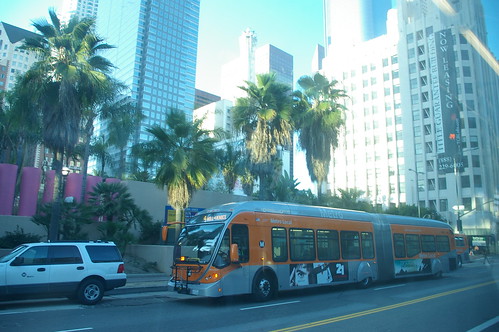(Source: GAO)
developments—compact,
walkable, mixed-use
neighborhoods located near
transit—through the Department of
Housing and Urban Development’s
(HUD) housing programs and the
Department of Transportation’s
(DOT) Federal Transit
Administration’s (FTA) transit
programs. GAO was asked to
review (1) what is known about
how transit-oriented developments
affect the availability of affordable
housing; (2) how local, state, and
federal agencies have worked to
ensure that affordable housing is
available in transit-oriented
developments; and (3) the extent to
which HUD and FTA have worked
together to ensure that
transportation and affordable
housing objectives are integrated in
transit-oriented developments. To
address these issues, GAO
reviewed relevant literature,
conducted site visits, and
interviewed agency officials.
What GAO Recommends
GAO is recommending that DOT
and HUD develop a plan for
implementing interagency efforts
to promote affordable housing in
transit-oriented developments,
ensure they collect sufficient data
to assess the results of these
efforts, and formalize key
collaboration practices. DOT and
HUD agreed to consider the
report’s recommendations.
Why GAO Did this Study
The federal government has increasingly focused on linking affordable housing to transit oriented developments—compact, walkable, mixed-use neighborhoods located near transit—through the Department of Housing and Urban Development’s (HUD) housing programs and the Department of Transportation’s (DOT) Federal Transit Administration’s (FTA) transit programs. GAO was asked to review (1) what is known about how transit-oriented developments affect the availability of affordable housing; (2) how local, state, and federal agencies have worked to ensure that affordable housing is available in transit-oriented developments; and (3) the extent to which HUD and FTA have worked together to ensure that transportation and affordable housing objectives are integrated in transit-oriented developments. To address these issues, GAO reviewed relevant literature, conducted site visits, and interviewed agency officials.

What GAO Found
Characteristics of transit-oriented developments can increase nearby land and housing values, however determining transit-oriented development’s effects on the availability of affordable housing in these developments are complicated by a lack of direct research and data. Specifically, the presence of transit stations, retail, and other desirable amenities such as schools and parks generally increases land and housing values nearby. However, the extent to which land and housing values increase—or in the rare case, decrease—near a transit station depends on a number of characteristics, some of which are commonly found in transit-oriented developments. According to transit and housing stakeholders GAO spoke with, higher land and housing values have the potential to limit the availability of affordable housing near transit, but other factors—such as transit routing decisions and local commitment to affordable housing—can also affect availability.
Few local, state, and federal programs are targeted to assisting local housing and transit providers develop affordable housing in transit-oriented developments. The few targeted programs that exist primarily focus on financial incentives that state and local agencies provide to developers if affordable housing is included in residential developments in transit-oriented developments. However, GAO found that housing developers who develop affordable housing in transit-oriented developments generally rely on local and state programs and policies that have incentives for developing affordable housing in any location. HUD and FTA programs allow local and state agencies to promote affordable housing near transit, but rarely provide direct incentives to target affordable housing in transit-oriented developments.
Since 2005, HUD and FTA, and more recently DOT, have collaborated on three interagency efforts to promote affordable housing in transit-oriented developments including (1) an interagency agreement, (2) a HUD-FTA action plan, and (3) a new DOT-HUD partnership. While these interagency efforts have produced numerous strategies, local housing and transit officials told GAO that these strategies had little impact, in part, because they have yet to be implemented. However, the agencies have not yet developed a comprehensive, integrated plan to implement all efforts, and without such a plan, the agencies risk losing momentum. GAO has previously identified key practices that could enhance and sustain collaboration among federal agencies; when compared to these practices, GAO found that HUD, FTA, and DOT have taken some actions consistent with some of these practices—such as defining a common outcome. However, weaknesses in agency housing data and analytical transportation planning methods will limit these agencies’ ability to effectively monitor, evaluate, and report results—another key collaboration practice. GAO found that other collaboration practices, such as establishing compatible policies and procedures, could be taken to strengthen collaboration. Finally, without a more formalized approach to collaboration, including establishment of memorandum of agreements, these agencies may not effectively leverage their unique strengths.
What GAO Recommends
GAO is recommending that DOT and HUD develop a plan for implementing interagency efforts to promote affordable housing in transit-oriented developments, ensure they collect sufficient data to assess the results of these efforts, and formalize key collaboration practices. DOT and HUD agreed to consider the report’s recommendations.
Click
here to read the entire study



